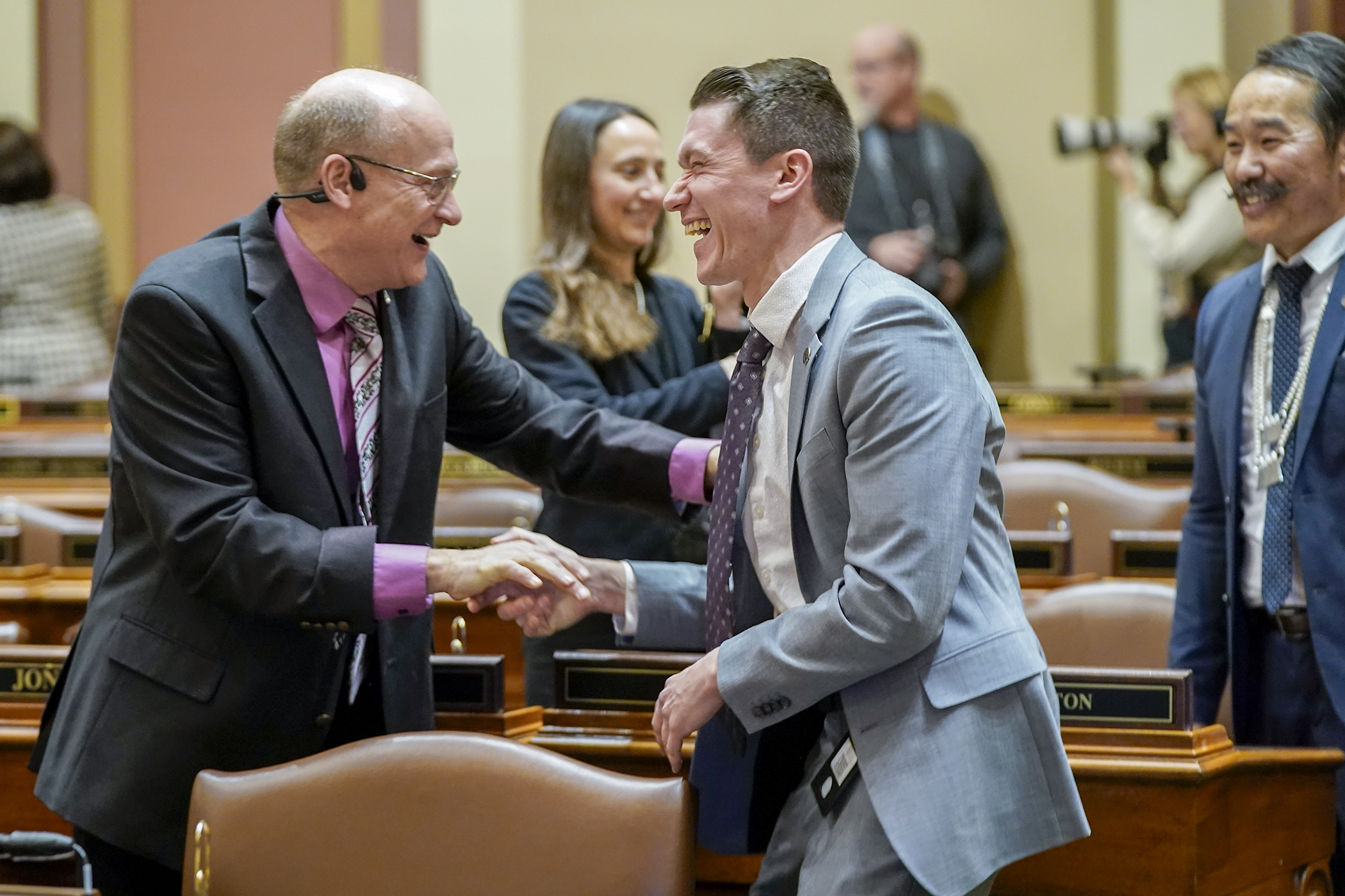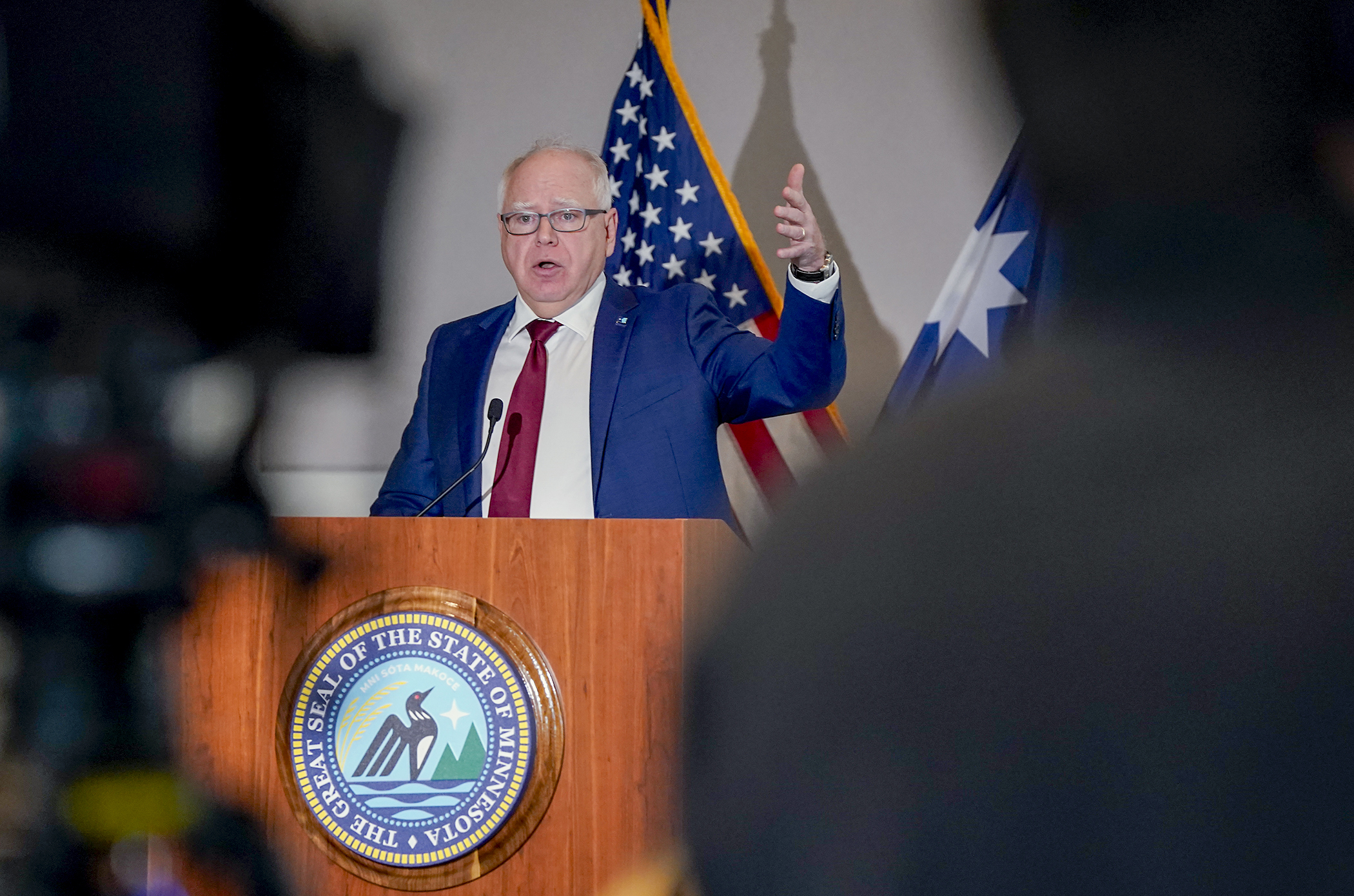Proposed tax credit for construction materials aimed at boosting Minnesota homebuilding
Members of the House Housing Finance and Policy Committee have said more than once that it will take every tool in the toolbox to alleviate the state’s shortage of affordable homes. One tool might be a tax break on construction materials.
Rep. Andrew Myers (R-Tonka Bay) has a pair of bills that would give first-time home buyers a refund on sales tax paid on construction materials used to build a new single-family home, duplex or triplex.
HF177 and HF178 are on their way to the House Taxes Committee after the committee amended each and approved them on a split-voice vote.
Myers said the idea is to address the lack of supply and affordability of homes for first-time buyers by getting builders to invest in model homes and then find qualified buyers.
First-time homebuyers would be exempt from paying sales tax on the first $165,000 of construction, which Myers said is generally the materials cost for a $500,000 home. The credit would be reflected in the sale price of the home, so first-time buyers would be the ultimate beneficiary.
The exemption would expire July 1, 2033.
Lumber, windows, shingles, cabinets, millwork, appliances, lighting, sheetrock, and a few more smaller items are subject to sales tax. According to Mark Foster, vice president of legislative and political affairs at Housing First Minnesota, the potential savings on a 1,600-foot rambler could be $9,000 to $10,000.
“While that might not seem like a lot, keep in mind that for every $1,000 in cost savings more than 2,500 more Minnesota families could afford that home,” Foster said.
Other states have found success with the tax credit, Myers said, citing Georgia, Colorado, California, and Texas.
Minnesota exempts sales tax on building materials in some cases, often when another government entity is a buyer, such as a public housing agency expanding a low-income housing project or a town rebuilding a public building after a fire.
Committee members offered some concerns and suggestions, such as ensuring the bill is clearly targeting starter homes and having some occupancy requirements. The impact on the General Fund isn’t available yet, but an estimate is expected by the bill’s next committee stop.
Rep. Michael Howard (DFL-Richfield) wasn’t sure how the bill would incentivize building more starter homes if the credit goes to the buyer instead of the builder.
“No arguments from me that producing affordable starter homes is a need, but if the goal is to help builders build starter homes in a more affordable way, there’s other ways to do that in ways that don’t cost state tax money. We could be looking at a hefty price tag,” he said.
Related Articles
Search Session Daily
Advanced Search OptionsPriority Dailies
Full House convenes for first time in 2025, elects Demuth speaker
By Tim Walker DFL, Republicans convene with a quorum for the first time in 2025 session after agreeing to a power-sharing deal.
DFL, Republicans convene with a quorum for the first time in 2025 session after agreeing to a power-sharing deal.
Walz proposes slimmed-down 2026-27 state budget, sales tax changes
By Tim Walker This is an odd-numbered year, and so the Legislature is constitutionally required to craft a budget to fund the state government for the next two fiscal years.
Gov. Tim Walz...
This is an odd-numbered year, and so the Legislature is constitutionally required to craft a budget to fund the state government for the next two fiscal years.
Gov. Tim Walz...